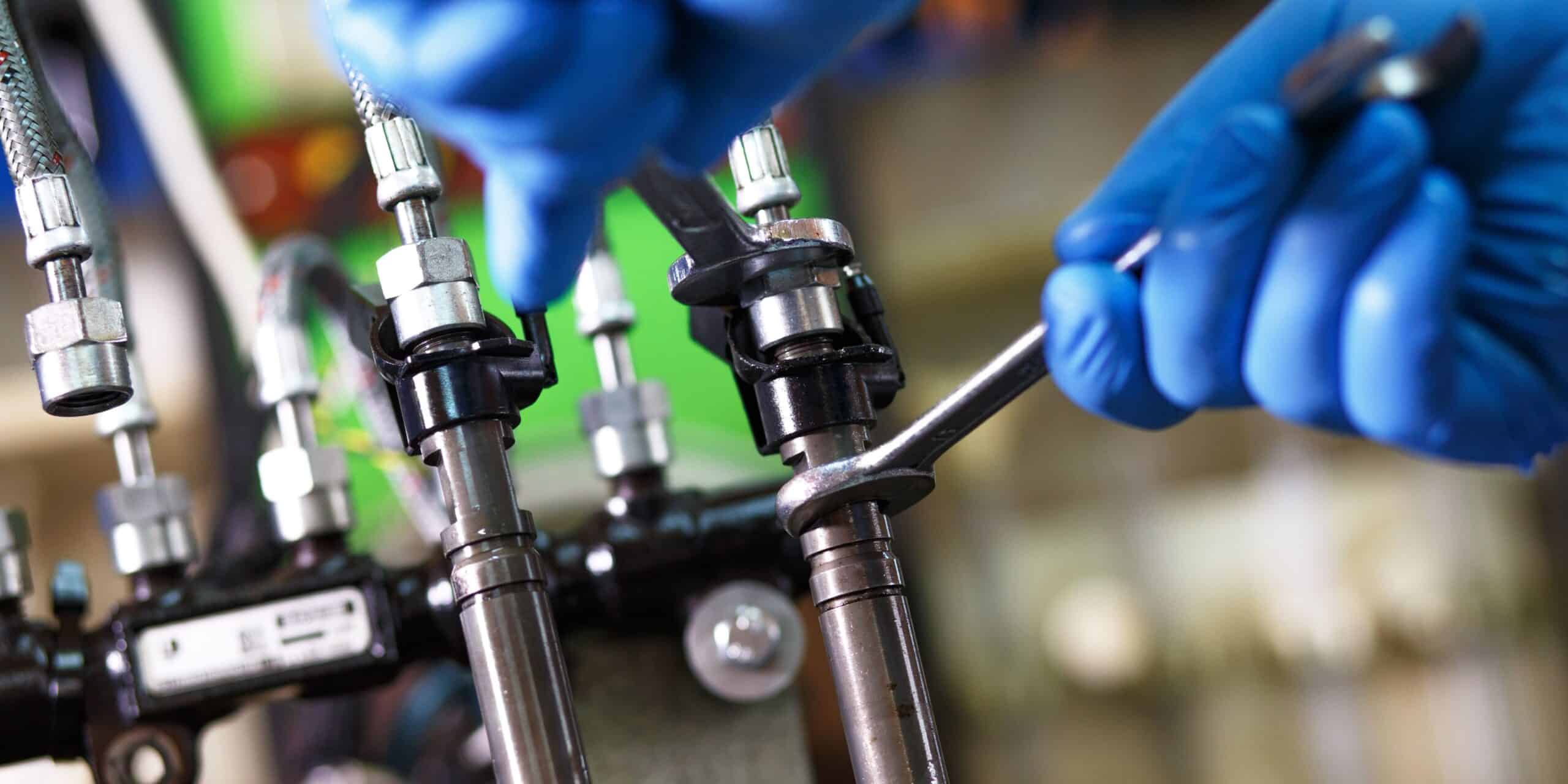Diesel exhaust fluid (DEF) is vital for moderating truck emissions to meet Environmental Protection Agency (EPA) guidelines. DEF is used in all types of oil-related products, from heavy-duty trucks and machinery to generators, off-road vehicles and other types of engines. Chemically, it’s essential for the trucking industry to meet emissions targets and move toward more environmentally friendly operations.
All truck engines that meet EPA guidelines from 2010 or later are required to have a dashboard washing system to alert you when DEF levels are running low. Here’s everything you need to know to maintain DEF.
What is Diesel Exhaust Fluid?
Diesel exhaust fluid is a combination of deionized water and urea. Its role is to transform nitrous oxide emissions into water and gas. Freight trucks use diesel exhaust fluid to reduce emissions levels.
In most modern trucks, you’ll find displays on the dashboard that monitor DEF levels and alert the driver to low levels. DEF improves fuel efficiency, leading to not only lower emissions but reduced fuel costs.
The American Petroleum Institute offers a voluntary certification program to ensure that you’re getting high-quality, pure DEF.
How Does Diesel Exhaust Fluid Work?
Diesel exhaust fluid works in a process called selective catalytic reduction (SCR). In SCR, exhaust gases are delivered through a filter and into a catalyst where the gasses are mixed with DEF. This process transforms the harmful emissions into water and nitrogen.
For this process to work, DEF needs to be replaced regularly. Well-maintained heavy-duty truck engines will need 3 to 5 gallons of diesel exhaust fluid for every 1,000 miles traveled.
The Selective Catalytic Reduction Process
Selective catalytic reduction is an advanced emissions-control process that reduces tailpipe emissions from heavy-duty vehicles. Nitrogen oxide is one of the most harmful emissions of the trucking industry.
With the use of DEF in the SCR process, emissions can be reduced to nearly zero in newer diesel-powered equipment and vehicles.
Diesel Exhaust Fluid Shelf Life
Diesel exhaust fluid’s shelf life is usually two years. To reach this time, you’ll need to store it between 23°F and 68°F. Diesel exhaust fluid is typically consumed at the rate of 2% to 3% of the relative fuel you’re using. So for every 65-gallon gas tank refill, you’ll need 1.2 to 2 gallons of DEF. Normally, you should replace DEF every third to fourth time you fill up your tank.
What are the Hazards of DEF?
DEF can be an eye and skin irritant and should not be consumed, but you can usually wash it off with soap and water. Of greater concern, diesel exhaust fluid is mostly water, so it can freeze or evaporate. You’ll want to keep DEF in a tightly sealed container.
DEF that has been previously frozen will still work, and usually during the normal course of driving it will warm up above its freezing temperature of 12°F. Frozen DEF does expand. To prevent damage to the truck’s SCR system when driving in cold weather, allow fluids to strain into the tank before shutting off the vehicle.
In terms of evaporation, it’s important to check DEF levels regularly when driving in hot temperatures, although most tanks are well-sealed to prevent evaporation.
7 Facts About Diesel Exhaust Fluid
Want to know more about diesel exhaust fluid? Here are the fast facts:
- DEF contains 67.5% deionized water and 32.5% urea. In other words, it’s mostly water.
- DEF can evaporate or freeze, but its freezing temperature is lower than water at 12°F.
- Each truck needs a different amount of DEF. Expect to use 2 to 3 gallons of DEF for every 100 gallons of diesel.
- You can usually buy DEF at truck stops and may be able to get it at stores like Walmart and Target.
- Trucks that use DEF can cost more upfront but will save you both fuel costs and lower emissions.
- DEF weighs about 9 pounds per gallon.
- DEF usually costs $2 to $3 per gallon.
Refilling Diesel Exhaust Fluid
You can top up DEF before any long haul. It is fast and easy and ensures you don’t run low on the road. As it’s nontoxic, you don’t need any protective clothing or specialized tools. All you have to do is locate the fill port, usually next to the fuel port, and top it off manually. DEF and fuel ports are different sizes so you can’t accidentally put DEF in the wrong port.
If you want a specialized tuneup, a diesel mechanic can help ensure everything is working properly. They can also explain diesel diagnostic tools you may need.
Diesel Exhaust Fluid Final Thoughts
Diesel exhaust fluid is an inexpensive solution to meet EPA guidelines and move toward more green operations. With current and predicted diesel exhaust fluid shortages, it’s worth stocking up on enough to last a year or more. Just be sure to seal it well to avoid evaporation. Maintaining good DEF levels costs little but goes a long way toward efficiency and low emissions of your fleet.



